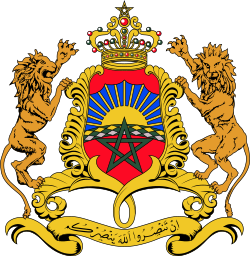 |
|---|
A foreign national wishing to enter Morocco must obtain a visa unless they are a citizen of one of the countries eligible for visa exemption.
Contents
- Visa policy map
- Visa exemption
- Electronic Travel Authorization (AEVM)
- Non-ordinary passports
- Future changes
- Electronic Visa (eVisa)
- Regular eVisa
- Conditional eVisa
- Further Authorization Required
- See also
- References
- External links
On July 10, 2022, the Moroccan government launched an e-Visa system [1] to facilitate the granting of visas to foreign nationals subject to this formality.

